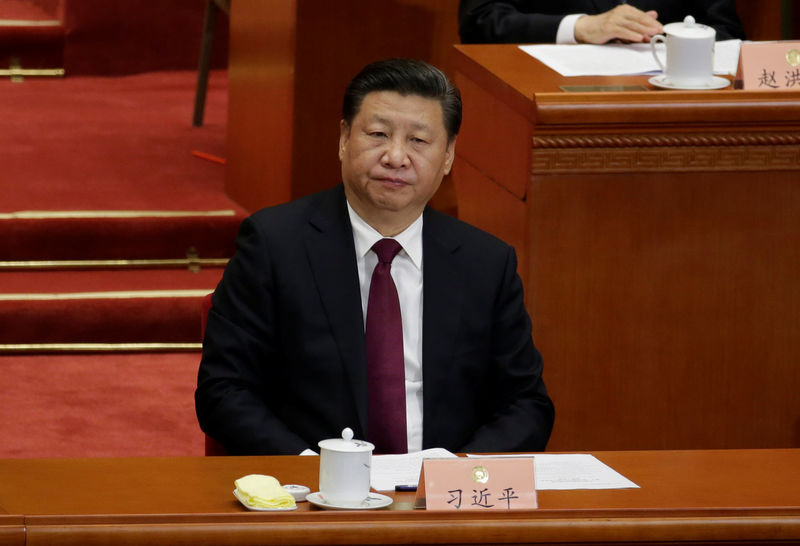By David Brunnstrom and Christian Shepherd
WASHINGTON/BEIJING (Reuters) - U.S. President Donald Trump and Chinese President Xi Jinping will hold their first face-to-face talks next week, a highly anticipated meeting between leaders at odds over trade, China's strategic ambitions, and how to deal with North Korea's weapons programs.
The White House said Trump would host Xi next Thursday and Friday at his Mar-a-Lago retreat in Florida. It said Trump and his wife Melania will host Xi and his wife Peng Liyuan at a dinner next Thursday.
It will be the first meeting between Xi and Trump, whose presidency began on Jan. 20, amid heightened tensions between the world’s two largest economies over issues including North Korea, the disputed South China Sea, Taiwan and trade.
Chinese Foreign Ministry spokesman Lu Kang gave no details of the agenda, but spoke of the need to see the big picture while fostering mutual interests in trade relations.
"The market dictates that interests between our two countries are structured so that you will always have me and I will always have you," he told a regular briefing.
"Both sides should work together to make the cake of mutual interest bigger and not simply seek fairer distribution," he said.
U.S. administration officials say the need for China to do more on North Korea, the large U.S. trade imbalance with China, and Beijing's pursuit of expansive claims in the South China Sea will top the agenda. Trump has sharply criticized China on all of the issues.
White House spokesman Sean Spicer told a news briefing the meeting was be an opportunity for Trump "to develop a relationship in person with President Xi."
"He's spoken to him on the phone a few times, but we have big problems ... everything from the South China Sea, to trade, to North Korea. There are big issues of national and economic security that need to get addressed."
Asked whether the administration had a vision, or a description for its China policy like the "pivot" or "rebalance" to Asia touted by former President Barack Obama, Spicer said:
"Right now we're not worried so much about slogans as much as progress. There's a lot of big things that we need to accomplish with China, and I think that we will - we will work on them."
The summit will follow a string of U.S.-China meetings and conversations aimed at mending ties after strong criticism of China by Trump during his election campaign.
U.S. Secretary of State Rex Tillerson agreed in Beijing this month to work with China on North Korea and stressed Trump's desire to enhance understanding.
China has been irritated at being told repeatedly by Washington to rein in North Korea's nuclear and missile programs, or face U.S. sanctions on Chinese businesses trading with North Korea, and by the U.S. decision to base an advanced missile defense system in South Korea.
Beijing is also deeply suspicious of U.S. intentions toward self-ruled Taiwan, which China claims as its own, after Trump broke with decades of U.S. policy by taking a phone call from Taiwanese President Tsai Ing-wen and saying that Washington did not have to stick to a "one China" policy.

Trump later agreed in a phone call with Xi to honor the long-standing policy and has also written to him since seeking "constructive ties."